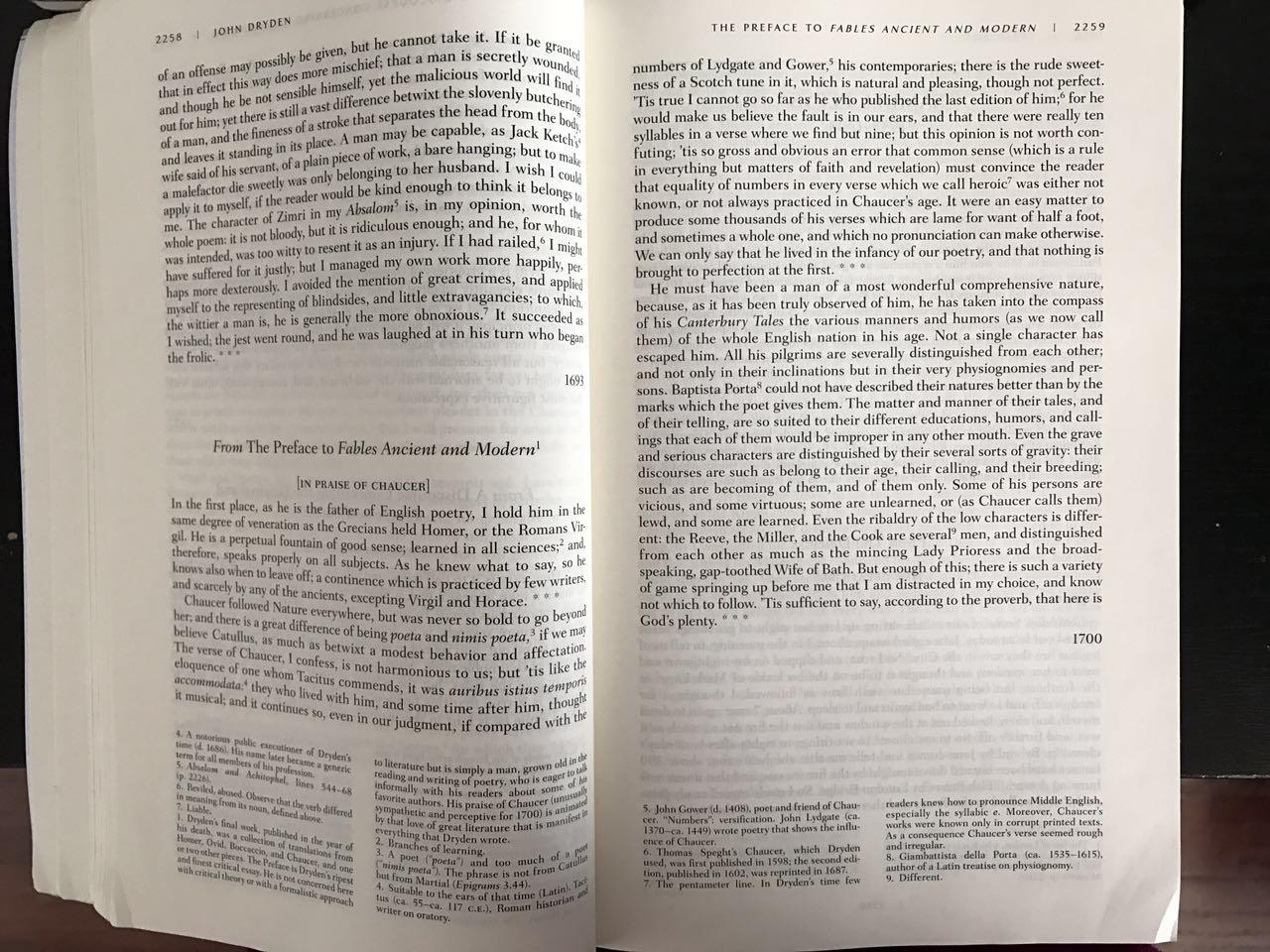eng
I’m not really concerned about the quality of the writing or the correctness of the answer, but I am very concerned that the answers demonstrate that the student has read the assigned text, and has made a serious attempt to respond to the questions. The answer must be your own thoughts about articles.
Study question assignments will always consist of three questions. Your answer to each of the questions must be at least 150 words of your own writing – a quotation from the text will not be included in a count of the number of words you have written, nor will a repetition of the study question as part of your answer.
Study questions must be typed and single spaced. Your name and the title of the assignment should be at the top of the page, and each of your answers should be preceded by the question you are answering.
Study Questions on Dryden’s “Mac Flecknoe” and “A Song for St. Cecilia's Day”
Link: Mac Flecknoe: https://www.poetryfoundation.org/poems-and-poets/poems/detail/44181
A song for St.: https://www.poetryfoundation.org/poems-and-poets/poems/detail/44185
1. In “Mac Flecknoe,” what role does “nature” play in Dryden’s denunciation of Sh__?
2. In ll.157‑60 of “Mac Flecknoe,” what is the connection between “dullness” and the advice to Sh__ that he write “by thy own model”?
3. The final line of “A Song for St. Cecilia's Day” describes a future when “MUSICK shall untune the Sky”(l.63). Does this view of music conflict with how music is described is the rest of the poem? If so, why? If not, why not?

Study Questions on Dryden’s Criticism
1. What does Dryden mean by “wit”? Why, for Dryden, is “wit” the central quality of good poetry?
2. Are you persuaded by Dryden’s argument that it is virtually impossible for “particular opinion” to contest “general authority” (p. 2256)? Why or why not?
3. What, for Dryden, is the role of “Nature” in good poetry? How is what he says about” Nature” connected to what he says about “wit”?
Study Questions on Pope’s “An Essay on Man”
Link: Epistle 1: https://www.poetryfoundation.org/poems-and-poets/poems/detail/44899
Epistle 2: https://www.poetryfoundation.org/poems-and-poets/poems/detail/44900
1. What does the poem suggest that humans want “reason” to explain? Will “reason” succeed in accomplishing this? Why or why not?
2. What does Pope mean by “order” in sections 8,9, and 10 of Epistle 1?
3. Why does Pope think “the proper study of mankind is man”(Epistle 2,l.2)?



